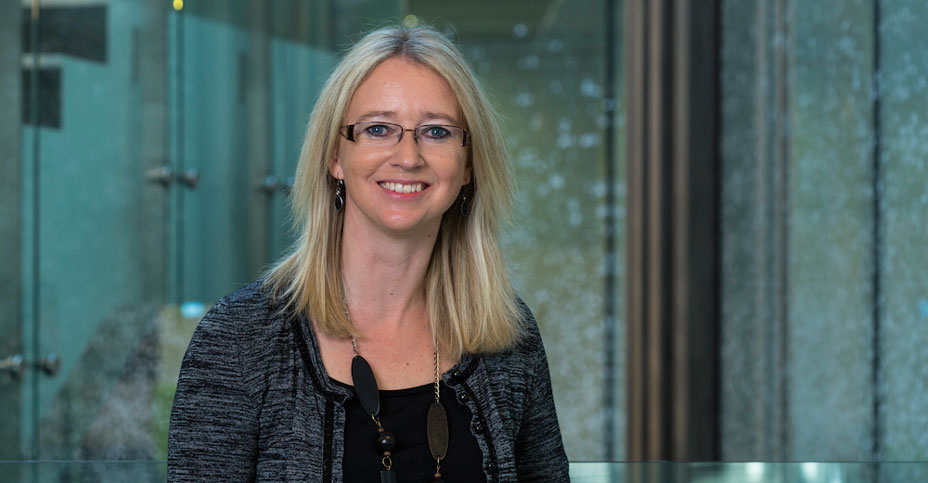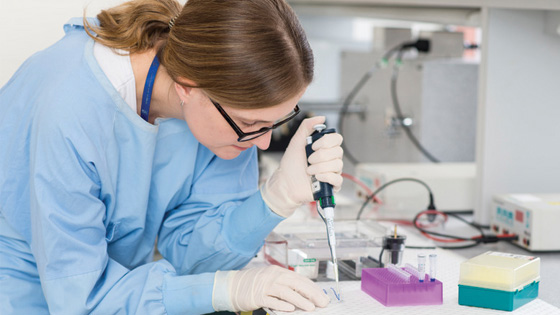
Professor Allison Cowin, Research Professor, Future Industries Institute, University of South Australia
The same gene which enables flies to fly could hold the answer to healing chronic wounds.
Professor Allison Cowin is developing the world’s first human therapeutic antibody for the cytoskeletal protein Flii, also known as ‘Flightless I,’ which has been found to improve wound healing. This medical advancement is game-changing for the treatment of wounds and is particularly valuable for children with the debilitating rare skin condition epidermolysis bullosa (EB).
“Our initial experiments have found that Flightless I plays an important role in the development of the skin barrier and thickness – so our antibody has the potential to not only help wounds heal but also to prevent the skin from breaking down again,” Prof Cowin says.
The Flii protein was first discovered by geneticists studying fruit flies who found that by removing this particular protein flies could no longer fly - hence the name Flightless. Further studies showed that the protein is present in humans. Prof Cowin went on to study Flightless I in more depth and discovered that the human body produces high levels of the protein in wounds.
“We discovered that Flightless I has a positive effect on inflammation, so in a wound it is upregulated to control the body’s inflammatory response in fighting infection. However, this protein increase actually delays - and in some cases completely prevents - wounds from healing.”
Prof Cowin developed a Flii neutralising antibody which is delivered to wounds in the form of a cream. Her team tested the antibody across different types of wounds, including diabetic ulcers and burns, and found that the antibody is effective in reducing the amount of Flii and improving wound healing.
Prof Cowin is harnessing her skin healing expertise to help children with the condition epidermolysis bullosa (EB). This rare disease, which typically affects babies, toddlers and young children, results in extremely fragile skin that can be damaged at the slightest touch. Because the skin is so delicate, painful blisters and wounds frequently form and those suffering from dystrophic EB - the most severe kind - experience blistering inside and out, in places such as the mouth, stomach, oesophagus, and bladder. There is no treatment or cure for the condition, with daily wound care, pain management and protective bandaging being the only options available to improve the quality of EB patients’ often short lives.
Prof Cowin and her team are progressing towards humanisation and clinical trials, two crucial steps in bringing the antibody to market.
“We’ve seen remarkable results so far across all types of wounds, so we’re looking forward to seeing where our work with Flightless I will take us on our journey towards perfectly healing wounds.”
You can support Prof Cowin and her team continue their crucial research to help people suffering from skin conditions and chronic wounds worldwide.

100% of your gift will go directly to support health research at UniSA - there are no administration fees, no overheads and no hidden costs.

100% of your gift will go directly to support health research at UniSA - there are no administration fees, no overheads and no hidden costs.